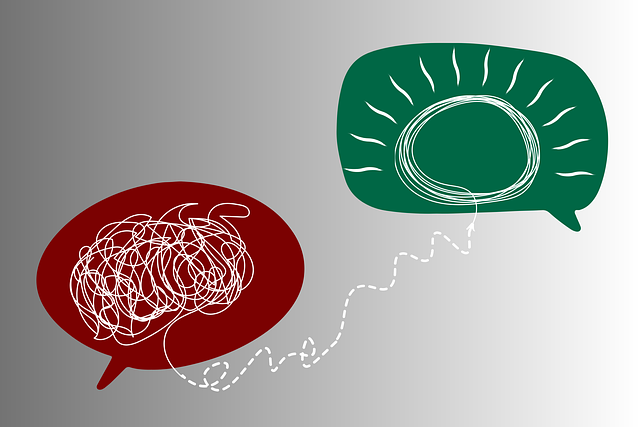Humanistic psychotherapy is a client-centered approach that emphasizes personal growth, self-actualization, and present-moment experiences to improve mental health. It prioritizes building a strong therapeutic relationship based on trust, understanding, and non-judgment. Key techniques include active listening, empathy, unconditional positive regard, in-depth exploration of feelings, goal setting with action planning, and addressing self-concept for enhanced psychological well-being. This approach empowers individuals to take control of their mental health journey, fostering resilience, adaptability, and personal growth beyond therapy sessions.
Humanistic psychotherapy offers a holistic approach to mental health support, focusing on personal growth, self-actualization, and the inherent capacity for change. This therapeutic framework emphasizes building trust through authentic relationships, empowering clients to find their own solutions, and fostering emotional awareness. By combining techniques like unconditional positive regard, goal setting, and identity exploration, humanistic psychotherapy helps individuals navigate their feelings, make meaningful changes, and integrate new insights into daily life.
Understanding Humanistic Psychotherapy: A Foundation for Mental Health Support

Humanistic psychotherapy is a therapeutic approach that emphasizes the inherent capacity for growth and self-actualization within individuals. It views each person as an expert on their own experiences, fostering a collaborative relationship between therapist and client. This method prioritizes the individual’s subjective experience, focusing on present-day issues and concerns rather than solely dwelling on past events or diagnoses.
By creating a supportive and non-judgmental environment, humanistic psychotherapy encourages clients to explore their thoughts, feelings, and behaviors in a safe space. Therapists employ active listening, empathy, and genuine understanding to promote self-awareness and personal growth. This approach is particularly beneficial for those seeking to enhance their mental health, improve self-esteem, and develop more adaptive coping mechanisms for managing life’s challenges.
Core Principles: Emphasizing Self-Actualization and Personal Growth

Humanistic psychotherapy, a branch of mental health psychotherapy, places its core principles in self-actualization and personal growth. This therapeutic approach believes that individuals have an innate drive to grow and reach their full potential. Psychotherapists who adhere to this philosophy work collaboratively with clients to uncover their strengths and resources, fostering an environment where they can explore their feelings, thoughts, and behaviors without judgment.
The primary goal is to help individuals achieve personal growth and a deeper understanding of themselves. This involves encouraging self-awareness, self-acceptance, and the development of a positive sense of self. By focusing on the present moment and the individual’s unique experiences, humanistic psychotherapy empowers clients to make meaningful changes in their lives, leading to improved mental health and overall well-being.
The Therapeutic Relationship: Building Trust and Authenticity

In humanistic psychotherapy, the therapeutic relationship is paramount. It’s based on a deep respect for the client’s inherent worth and capacity for growth. Therapists foster an environment of trust and authenticity, creating a safe space where clients feel understood and accepted, allowing them to explore their thoughts and emotions freely. This non-judgmental attitude empowers individuals to develop self-awareness and take ownership of their mental health journey.
The therapist-client bond encourages open communication, where both parties actively listen and engage. This collaborative approach enables clients to set their own goals and find personalized solutions. By building trust, humanistic psychotherapists help individuals heal from past traumas, manage stress, and cultivate resilience, ultimately enhancing their overall mental well-being.
Client-Centered Approach: Empowering Individuals to Find Their Own Solutions

The Client-Centered Approach, pioneered by Carl Rogers, is a cornerstone in humanistic psychotherapy. This therapeutic technique places the focus squarely on the client, empowering them to explore their own feelings and thoughts in a safe, non-judgmental environment. By fostering a strong therapeutic alliance, this approach encourages individuals to become more self-aware, enabling them to make sense of their experiences and find their own unique solutions.
In mental health psychotherapy, this method goes beyond simply providing advice; it’s about helping clients discover their inner resources and strengths. Through active listening and genuine empathy, therapists create a space where clients feel understood and valued. This supportive atmosphere allows individuals to take ownership of their mental well-being, fostering self-acceptance and personal growth.
Unconditional Positive Regard: Creating a Safe Space for Exploration

Unconditional Positive Regard (UPR) is a cornerstone of humanistic psychotherapy, fostering a safe and supportive environment for individuals to explore their thoughts and emotions freely. This concept emphasizes acceptance and non-judgmental listening, allowing clients to feel seen and understood. By providing UPR, therapists create a space where individuals can begin to challenge negative self-perceptions and beliefs without fear of criticism or rejection.
In mental health psychotherapy, UPR serves as a powerful tool to build trust between the therapist and client. This safe haven encourages vulnerability, enabling clients to delve into their deepest fears, struggles, and aspirations. Through consistent UPR, individuals can develop a healthier self-image, fostering resilience and personal growth within a nurturing therapeutic setting.
Exploring Feelings and Experience: Encouraging Emotional Awareness

In humanistic psychotherapy, a core aspect of treatment involves exploring feelings and experiences in depth. This process encourages clients to develop a profound emotional awareness, which is essential for mental health and personal growth. Therapists create a safe, non-judgmental space where individuals can freely express their thoughts and emotions without fear of consequence. Through active listening and empathetic responses, the therapist fosters an environment that promotes self-reflection and introspection.
By delving into their feelings, clients gain valuable insights into their inner world. This heightened emotional awareness enables them to better understand the underlying causes of their distress or challenges. As a result, individuals become more equipped to manage their mental health effectively, fostering resilience and adaptability in navigating life’s complexities.
Goal Setting and Action Plans: Facilitating Personal Change

In humanistic psychotherapy, goal setting and action planning are powerful tools that empower individuals to take charge of their mental health and facilitate personal growth. This approach recognizes that clients have the inherent capacity for self-actualization and change. Psychotherapists work collaboratively with their patients to identify specific, achievable goals aligned with their aspirations and values. By breaking down these goals into manageable action plans, clients gain a sense of direction and purpose.
These action plans are tailored to each individual’s unique needs and circumstances, focusing on small, incremental steps that lead to more significant changes over time. This method supports clients in developing problem-solving skills, building resilience, and fostering self-confidence. Regularly reviewing and adjusting these plans ensures that the process remains dynamic and responsive to personal growth, making it an effective strategy within humanistic psychotherapy for improving mental health and overall well-being.
Self-Concept and Identity: Addressing Core Beliefs and Values

Self-concept and identity are central aspects that humanistic psychotherapies focus on in order to improve one’s mental health. This involves exploring and challenging deeply held core beliefs and values, which often shape our perceptions of ourselves and influence our behaviors and emotions. Through dialogue with a therapist, individuals can gain insights into their underlying assumptions and begin to question the accuracy and usefulness of these beliefs.
By fostering a more flexible and adaptive self-concept, psychotherapy enables clients to embrace a broader range of experiences and perspectives, leading to enhanced psychological well-being. This process encourages individuals to move beyond rigid self-stigmas and limiting beliefs, allowing for personal growth and improved relationships with oneself and others.
Integration and Application: Translating Therapy into Daily Life

In humanistic psychotherapy, the ultimate goal is to help individuals integrate their experiences and emotions into their daily lives, fostering a sense of wholeness and well-being. This process involves translating therapeutic insights into practical applications that extend beyond the therapy room. Therapists guide clients to recognize and understand their feelings, thoughts, and behaviors, encouraging them to make meaningful changes in their lives. By cultivating self-awareness and personal growth, individuals can enhance their mental health and overall quality of life.
The integration of psychotherapy techniques promotes a more adaptive and balanced approach to coping with life’s challenges. Clients learn to apply what they’ve learned during therapy sessions to real-life situations, such as improving communication skills, managing stress, and resolving conflicts. This transfer of knowledge and skills allows individuals to navigate their relationships, work, and personal pursuits with greater ease and satisfaction, ultimately leading to improved mental health and a more fulfilling life.
